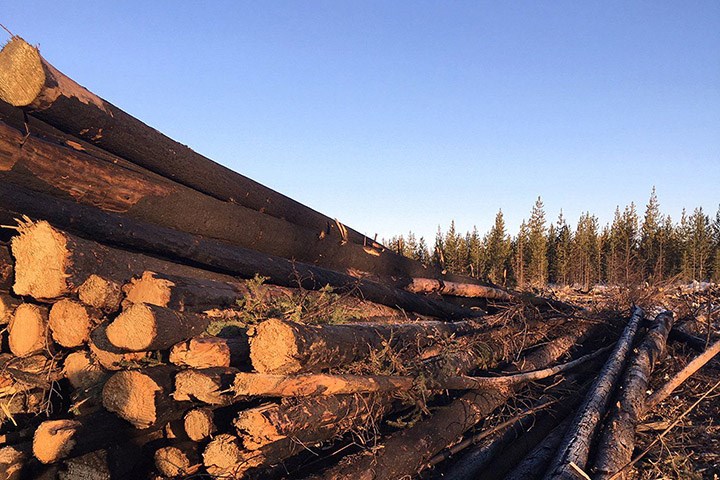A B.C. First Nation continues to move ahead with fire rehabilitation work south of Burns Lake following devastating wildfires two years ago.
The Cheslatta Carrier Nation is removing fire damaged trees so that the wood can be used after receiving a $1.25-million grant from the Forest Enhancement Society of B.C which will help their wholly-owned Cheslatta Forest Products cover the costs of shipping the residual fibre to a pellet plant or bio-energy facility.
Forestry co-ordinator Ben Wilson said they had started work to begin clearing the 50-hectare area which consists of around 35,000 trees late this February.
“It’s great to see it happening,” he said.
Located on the south side of Francois Lake between Grassy Plains, Ootsa and Cheslatta lakes, work on the project likely won’t be complete until 2021.
About 25 per cent of the fire damaged trees will be utilized by the West Fraser —Fraser Lake Sawmill.
“The other 75 per cent of the wood because it’s so fire damaged is going to Pinnacle Renewable Energy to make pellets in Burns Lake,” Wilson said.
The treated areas will be reforested, primarily with spruce seedlings.
“They were absolutely devastating,” Wilson said of the 2018 wildfires. “Cheslatta has a community forest and 75 per cent of it was burned in the fires of 2018 so it’s had a big impact on Cheslatta.”
Not including tree planters, he said the project has resulted in the employment of about 10 people
“As you know our whole world has changed here with the COVID-19 pandemic. We were certainly facing jobs losses as a result of it in the logging side, and so what that allowed us to do was to go into an area, rehabilitate the stands and also keep people employed during a time that was extremely uncertain for jobs and the economy as a whole.”
Cheslatta First Nation has also received funding through Forests for Tomorrow Program to remove younger damaged stands in which the first round of seedlings will be planted in 2021 Wilson added.
“Because the fire burned the roots out trees were starting to topple and you end up with another fire hazard on the land base, so it’s good to clean it up or start to clean it up.”
2018 was one of B.C’s worst fire seasons on record with 1.35 million hectares burned according to the Ministry of Forests, Lands, Natural Resource Operations and Rural Development.
It surpassed the previously unprecedented 2017 season in which more than 1.2 million hectares had burned.
“A lot of the territory even outside of the community forest burned so there’s been a loss of opportunity that will ripple out the next 40, 50 years but we were able to get going right away after restrictions came off on accessing the land from the fire,” Wilson said. “We were able get right back on to logging and provide stable employment for people here.”



